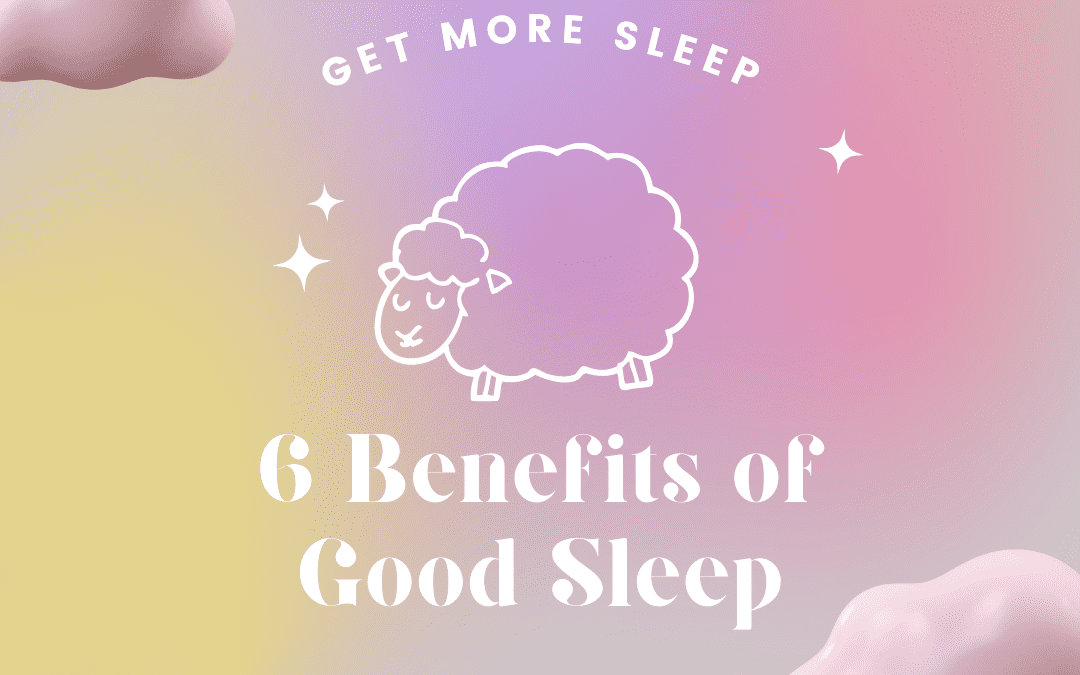Time is a precious commodity. With a myriad of daily tasks and responsibilities, many of us view sleep as an expendable luxury. I know I did. I stayed up late and woke up early, completely buying into the “grind it out” lifestyle.
However, numerous studies and experts, including Shawn Stevenson, the author of the bestselling book “Sleep Smarter,” emphasize the importance of good sleep for our overall health and well-being. In this blog post, I want to discuss the benefits of good sleep, drawing upon insights from Stevenson’s book, and offer some tips on what to do to Sleep Smarter.
The Benefits of Good Sleep
Improved Brain Function and Memory
According to Stevenson, sleep plays a vital role in maintaining and improving brain function (Stevenson, 2016). During sleep, our brains consolidate and organize memories, which is essential for learning and retaining new information. Additionally, a good night’s sleep enhances creativity, problem-solving, and decision-making abilities (Stevenson, 2016).
Enhanced Emotional and Mental Health
Stevenson highlights the strong link between sleep and emotional health. Poor sleep can exacerbate stress, anxiety, and depression (Stevenson, 2016). On the other hand, getting quality sleep can help regulate mood, increase emotional resilience, and reduce the risk of developing mental health issues.
Strengthened Immune System
In “Sleep Smarter,” Stevenson discusses how sleep deprivation can weaken the immune system, making us more susceptible to illnesses and infections (Stevenson, 2016). Adequate sleep allows the body to repair and rejuvenate itself, ultimately strengthening our immune system and helping us ward off diseases.
Weight Management
One of the lesser-known benefits of good sleep, as mentioned in Stevenson’s book, is its impact on weight management. Lack of sleep can disrupt hormone levels, leading to increased appetite and decreased metabolism (Stevenson, 2016). By prioritizing sleep, we can better regulate our weight and make healthier choices throughout the day.
Increased Productivity and Performance
Stevenson emphasizes that well-rested individuals are more likely to be productive and efficient in their daily activities (Stevenson, 2016). Sufficient sleep leads to increased energy levels, better focus, and improved overall performance in both personal and professional pursuits.
Reduced Risk of Chronic Conditions
Lastly, Stevenson’s book highlights the connection between good sleep and the reduced risk of developing chronic conditions such as diabetes, heart disease, and stroke (Stevenson, 2016). By prioritizing sleep, we can minimize our risk of these health issues and contribute to a longer, healthier life.
“Sleep is the force multiplier for your life. When you get optimal sleep, it enhances all aspects of your life, from your energy levels to your body composition, to your relationships and emotional well-being.”
– Shawn Stevenson, Sleep Smarter
So, you may be asking “How do I Sleep Smarter?” Here are five things you can do to gain the benefits of a good night’s sleep.
- Establish a consistent sleep schedule: Going to bed and waking up at the same time each day, even on weekends, helps regulate your internal clock and improves the quality of your sleep. Consistency is key to training your body to sleep better.
- Create a relaxing bedtime routine: Engage in calming activities before bed, such as reading a book, taking a warm bath, or practicing meditation. This helps signal to your body that it’s time to wind down and prepares your mind for sleep.
- Optimize your sleep environment: Ensure your bedroom is cool, dark, and quiet. You can use blackout curtains, white noise machines, or earplugs to block out any disturbances. Invest in a comfortable mattress and pillows that support proper sleep posture.
- Limit exposure to screens before bedtime: The blue light emitted by smartphones, tablets, and computers can interfere with the production of melatonin, the hormone that regulates sleep. Aim to avoid screens at least an hour before bed to help your body transition into sleep mode.
- Be mindful of your diet and exercise: Avoid heavy meals, caffeine, and alcohol close to bedtime, as they can disrupt your sleep. Regular exercise during the day can help improve sleep quality but try to finish any vigorous workouts at least a few hours before bedtime to give your body time to unwind.
From improved brain function to increased productivity, the benefits of prioritizing sleep are manifold. As we continue to navigate our hectic lives, it is crucial to remember that sleep is not a luxury but a necessity for our overall health and well-being.
If you liked this article, join the discussion on the Defining Life Podcast where I discuss this and other Mental Health Awareness Month topics.

